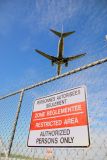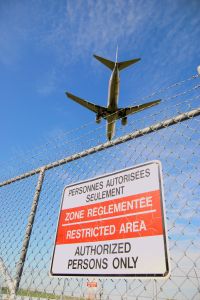
News
Sharing Skies, Managing Risk
 Flying is an international activity and global trade is dependent on
it. Aviation security cannot and does not end at any national border.
With that as its basic premise, the second Canadian Aviation Security
Conference will take place on March 5 and 6, 2008, in Gatineau, Que.
Flying is an international activity and global trade is dependent on
it. Aviation security cannot and does not end at any national border.
With that as its basic premise, the second Canadian Aviation Security
Conference will take place on March 5 and 6, 2008, in Gatineau, Que.
February 11, 2008 By Drew McCarthy
 Flying is an international activity and global trade is dependent on it. Aviation security cannot and does not end at any national border. With that as its basic premise, the second Canadian Aviation Security Conference will take place on March 5 and 6, 2008, in Gatineau, Que.
Flying is an international activity and global trade is dependent on it. Aviation security cannot and does not end at any national border. With that as its basic premise, the second Canadian Aviation Security Conference will take place on March 5 and 6, 2008, in Gatineau, Que.
The event will focus on the aviation environment, the threats and security risks that exist and the challenges surrounding them. The conference will target the North American continent, while also casting a wider look at the rest of the world.
With the significant number of criminal and terrorist incidents that continue to take place around the world, it is important for Canadians to remain vigilant and not fall victim to complacency. One of the goals of the conference is to ensure that these issues remain top of mind.
In the opening session, government representatives from Canada, the U.S. and Mexico will discuss aviation security for North America.
The discussions will include the particular considerations for moving both people and goods through the air. In either case there must be a balance between efficiency and security. As Tom Hodge, spokesperson for the conference, puts it, “Aviation has made huge strides in the last five years in relation to improving the level of security and continuing to try to foster customer service. Everybody in security understands that we all have a role in ensuring that flying is a pleasurable experience.”
Similarly with cargo, a balance between security and the efficient movement of goods must be struck. Cargo is an issue that all countries have been working with for a number of years. The discussion will focus on what is being done to achieve the goal of increasing security levels while ensuring the flow of goods.
Some of the other sessions will deal with the issues surrounding home-grown terrorism, public and private policing, grass roots defences, technology across borders and the 2010 Olympics.
There are seven key organizations that make up this year’s list of conference partners: the Air Line Pilots Association, International, the Air Transport Association of Canada, the Canadian Airports Council, the Canadian Advanced Technology Alliance, the Canadian Air Transport Security Authority, the Canadian Police Sector Council and Transport Canada.
As Hodge points out, “If the general public looked at the seven partners that have developed the conference, they would say, ‘boy, am I glad these organizations are working together’.”
The fact that these groups are coming together to form partnerships and share ideas is of fundamental importance for Canadian aviation security. The challenge to a country that, since the Air India tragedy, has not been attacked or threatened, is to act in a proactive fashion. This conference aims to address that challenge.
The 2006 conference was an outstanding success and this year’s promises to be every bit as good. It should provide aviation and security professionals with information, tools, trends, legislation and strategies for addressing urgent and important security challenges.
The Canadian Aviation Security Conference will take place March 5 and 6, 2008, at the Hilton Lac Leamy in Gatineau, Que.
For more information, go to: http://www.cata.ca/CanadianAviationSecurityConference/